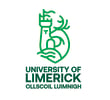Analysis: despite decades of use and millions of tests administered, there is little credible research to support their value or use
A recent article in the New York Times chronicles the growth of personality testing, which has become a $2 billion industry. The great majority of personality tests are given in work settings, and the results of personality tests are becoming increasingly important in hiring and staffing decisions. In many organisations, the composition of work teams might depend as much on the outcomes of personality tests as on the job-related skills of team members.
The most popular tests sort you into "types". The Myers-Briggs Type Indicator (MBTI) sorts people into one of 16 personality types based on four personality dimensions: introversion vs. extraversion, sensing vs. intuition, thinking vs. feeling, and judging vs. perceiving. The test, which produces a four-letter code to describe which type you most resemble (e.g., ISJF – Inward focused, prefer to take in information by Sensing, relate to the external world by Judging, and make decisions based on Feeling), is loosely based on the theories of the early psychoanalyst Carl Jung, and is one of the most widely used psychometric tests, with over 3.5 million administered each year.
We need your consent to load this rte-player contentWe use rte-player to manage extra content that can set cookies on your device and collect data about your activity. Please review their details and accept them to load the content.Manage Preferences
From RTÉ 2fm's Dave Fanning Show, author Merve Emre on the fascinating history of the Myers-Briggs personality test
Buit this is not the only test that sorts people by personality types. The Enneagram Personality Test sorts people into one of nine types (e.g., Perfectionist, Helper, Achiever). The DISC assessment colour-codes people into one of four types that correspond to four central traits (eg Dominance – red, Inducement – yellow, Submission – green, Compliance – blue). DISC practitioners often advise employers about which types are best for which tasks or which types of teams work together most effectively (eg, should you put a Blue and a Green on the same team?).
These type indicators share three key features: they are simple to use, they provide definitive answers (eg, you are one of four possible types) and they are largely worthless for making important decisions. Despite decades of use and millions of tests administered, there is little credible research to support their value or use.
All three of the type indicators described here have been labelled "pseudoscience", in large part because of the low levels of reliability these tests can exhibit and the lack of evidence that the tests measure anything useful or that they can be used to guide important decisions. The whole idea of types – i.e., the idea that you are either X or Y – is seen as dubious by most psychologists. I have spent 40 years doing research on psychological measurement, and my advice to employers is if someone offers you a test that will sort employees into four, or nine, or 16 or more types, hang up the phone.
We need your consent to load this YouTube contentWe use YouTube to manage extra content that can set cookies on your device and collect data about your activity. Please review their details and accept them to load the content.Manage Preferences
From TED-Ed, do personality tests work?
There are good personality tests with a proven track record for predicting performance and success in jobs. For example, the NEO Personality Inventory measures five essential aspects of personality (Neuroticism, Extraversion, Openness, Agreeableness, and Conscientiousness) and there is evidence for the broad relevance of some of these dimensions (especially Conscientiousness) in virtually all jobs, and for the relevance of other dimensions in specific job categories (eg Extraversion and Agreeableness in sales jobs).
There are hundreds of studies supporting the Five-Factor model that underlies this test. The relevance of these measures is obvious when you compare candidates who receive high vs. low scores on these aspects of personality. I don't know about you, but I would rather hire an applicant who is emotionally stable, outgoing, broadminded, agreeable, and dependable than one who is unstable, withdrawn, narrowminded, unpleasant, and undependable. Unfortunately, Gresham's law applies as well to personality tests as is does to currency: bad tests tend to drive out the good. In the workplace, you are much more likely to be asked to take the MBTI or a DISC assessment than the NEO Personality Inventory.
As an employer, there are several things you can do to avoid the trap of letting dubious tests influence important decisions. First, it is always good to ask why you might want to use personality tests. A good test can have some value in selecting among job applicants, but personality tests in general are far from the best predictors of job performance or effectiveness. Good measures of cognitive ability and well-structured interviews have a much better track record as predictors of performance.
Personality tests are simple to use, provide definitive answers and are largely worthless for making important decisions
Second, it is good to ask how tests might be used and avoid any tests that claims to sort people into types. If a consultant offers to tell you how to staff your teams with the right four-letter codes or the right mix of red, yellow, blue and green, call security and have them escorted off the premises. Third, be skeptical. A good psychometric test can help you make better decisions, but it is not a substitute for decision making. Anyone who tries to sell you certainty in predicting job success might next try to sell you the Brooklyn bridge.
So why are personality tests so popular? The best answer is that some of them claim to offer you a clear window into understanding what people are like and what they will do. It is a false window, or at least an incomplete one. Behaviour is almost always determined by the person and the situation. Even the most extroverted person will probably avoid back-slapping and telling jokes at a funeral mass. Even the most introverted person will loosen up at an exciting sports match.
Personality measures tell you about some broad behavioural tendencies, and this can be useful information. Some people are more dependable than others and some are more or less outgoing. It's a mistake to think that personality is destiny or that even a good measure or personality will always tell you what to expect, but good measures of personality have clear and genuine value as sources of information, and they can help you make better decisions in organisations. Just don’t colour-code your workforce or sort them into four-letter types.
The views expressed here are those of the author and do not represent or reflect the views of RTÉ







